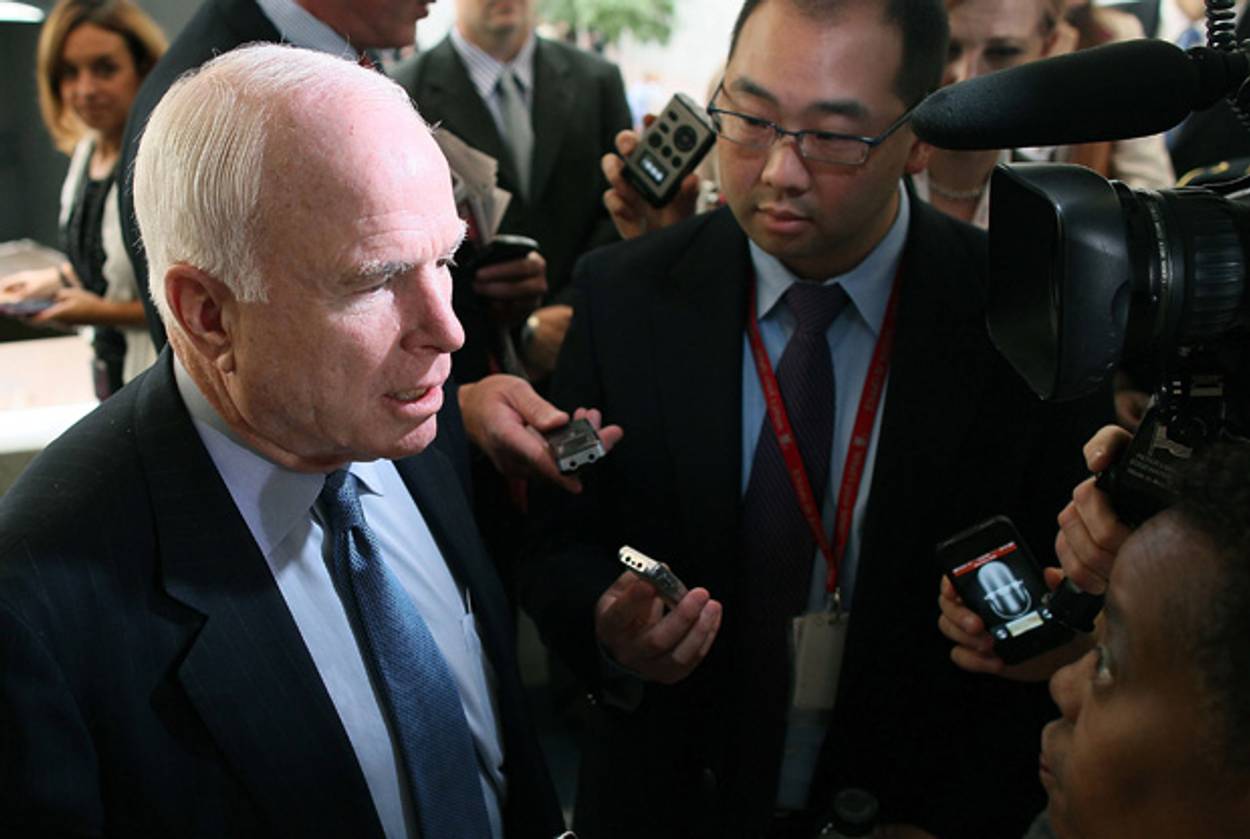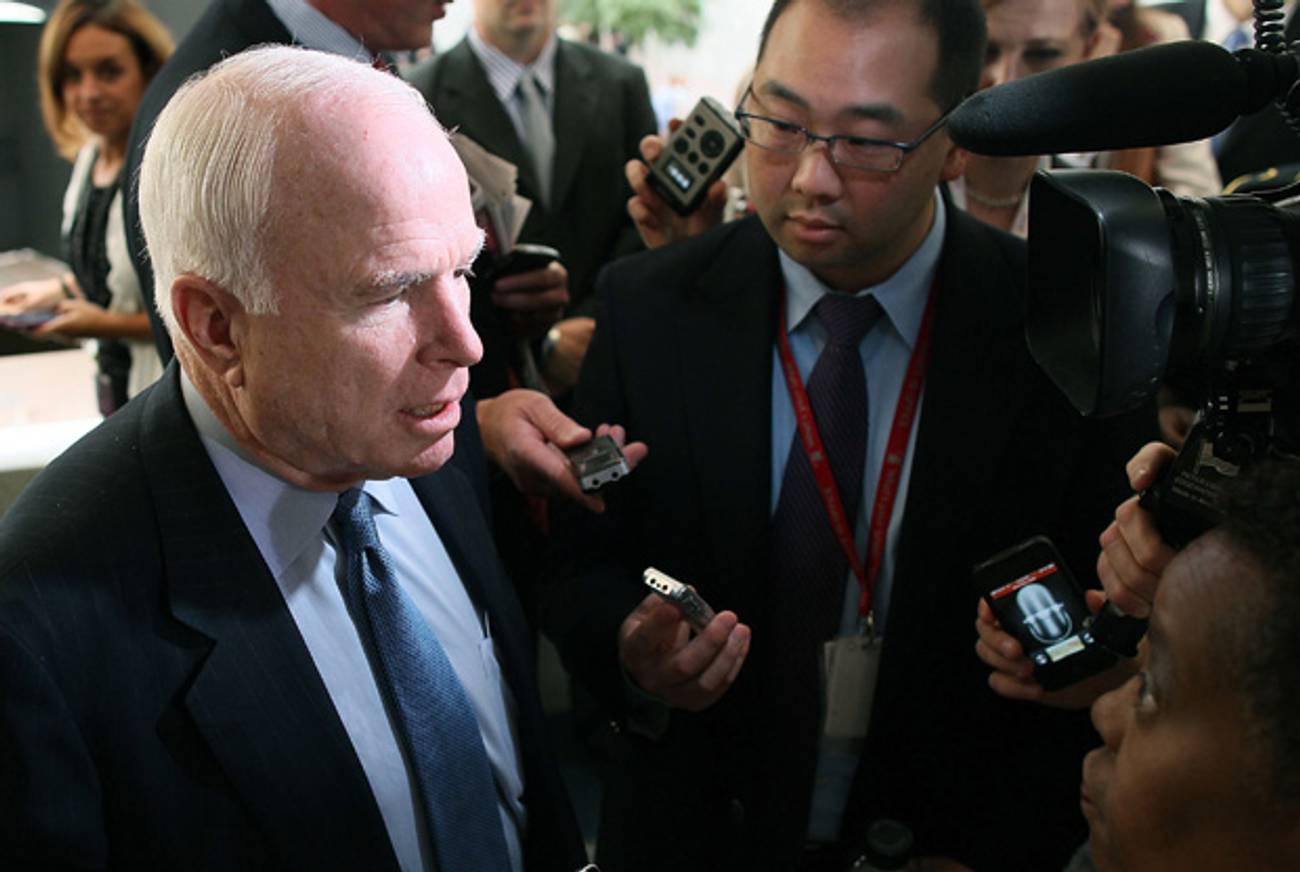Iran Cyberwar Leaks Prompt Political Brawl
Conservatives, Senate accuse White House; White House accuses NYT




A mini-war has erupted not just over the United States and Israel’s use of cyberweapons in a quasi-war against Iran, but over the White House’s alleged leaking of said information. Senators from both parties have criticized the White House—John McCain and Dianne Feinstein alike, for example—and the Armed Services Committee (chaired by a Jewish Democrat, Carl Levin) will investigate those leaks (as well as ones that led to the revelation of President Obama’s terrorist “kill list”). Some conservatives have accused the Obama administration of orchestrating the leaks for election-year political gain, even as Obama, during a televised press conference today, called such charges “offensive.”
Wrote Mideast columnist Lee Smith earlier this week:
The Times story is part of a larger narrative being driven by the Obama team, meant to enhance the president’s image in the middle of an election campaign where, according to some polls, the Republican candidate has pulled even with the incumbent. Forget the fact that Syria is burning, that the Russians have been emboldened by American impotence in the Middle East, or that the Iranians are tip-toeing across the finish line to get a nuclear weapon while American diplomats sit helplessly at a negotiating table. Focus rather on the image of a cool superhero commander in chief ordering clandestine attacks.
Meanwhile, a third player, in addition to the Senate and the administration, has entered the fray: the New York Times itself, which has seemingly benefited from so many of the alleged leaks—it broke the “kill list” story, as well as several details about Stuxnet and other anti-Iran malware. The Times has denied receiving leaks from the White House, even as Sen. John Kerry—generally seen as auditioning for second-term secretary of state, and therefore in some sense an administration surrogate—criticized the paper for running some of these pieces.
Amid the political jockeying and rhetoric is a broader question: namely, isn’t there an argument that the administration should be leaking (or, really, openly disclosing) some of its otherwise-clandestine dealings, to allow for the sort of public debate that democracies demand? Secretary of State Clinton is said to be particularly focused on the importance of public knowledge.
Finally, there’s Israel. The government, so far, has kept mum in this discussion. One could imagine the hawks at the top—Prime Minister Netanyahu and Defense Minister Barak—feeling miffed, however, because the Stuxnet revelations leave one with the basic impression that what the U.S. and Israel is currently engaged in is sufficient, for now, so far as Iran is concerned. While none of it is news to them, it is surely news to the Israeli public, which has avidly followed the revelations, and as a result might be more and more left with the impression that a military strike would be premature. “Is this the Obama administration trying to convince public opinion in the U.S and Israel and of course the Netanyahu government that the intelligence and electronic war on Iran is sufficient, and that there is no need for military strikes?” Haaretz‘ Anshel Pfeffer wonders. Referring to former and perhaps current members of the Israeli security establishment, many of whom oppose military action, he adds: “And are certain elements in Israel’s security and political establishment helping the Americans do this?”
Why Are America and Israel Suddenly Speaking So Openly About Cyberwarfare? [Haaretz The Axis]
The New York Times: Barack Obama’s Not Leaking to Us [Politico]
U.S. Attacks, Online and From the Air, Fuel Secrecy Debate [NYT]
Related: Leaking Cyberwar Secrets [Tablet Magazine]
Marc Tracy is a staff writer at The New Republic, and was previously a staff writer at Tablet. He tweets @marcatracy.